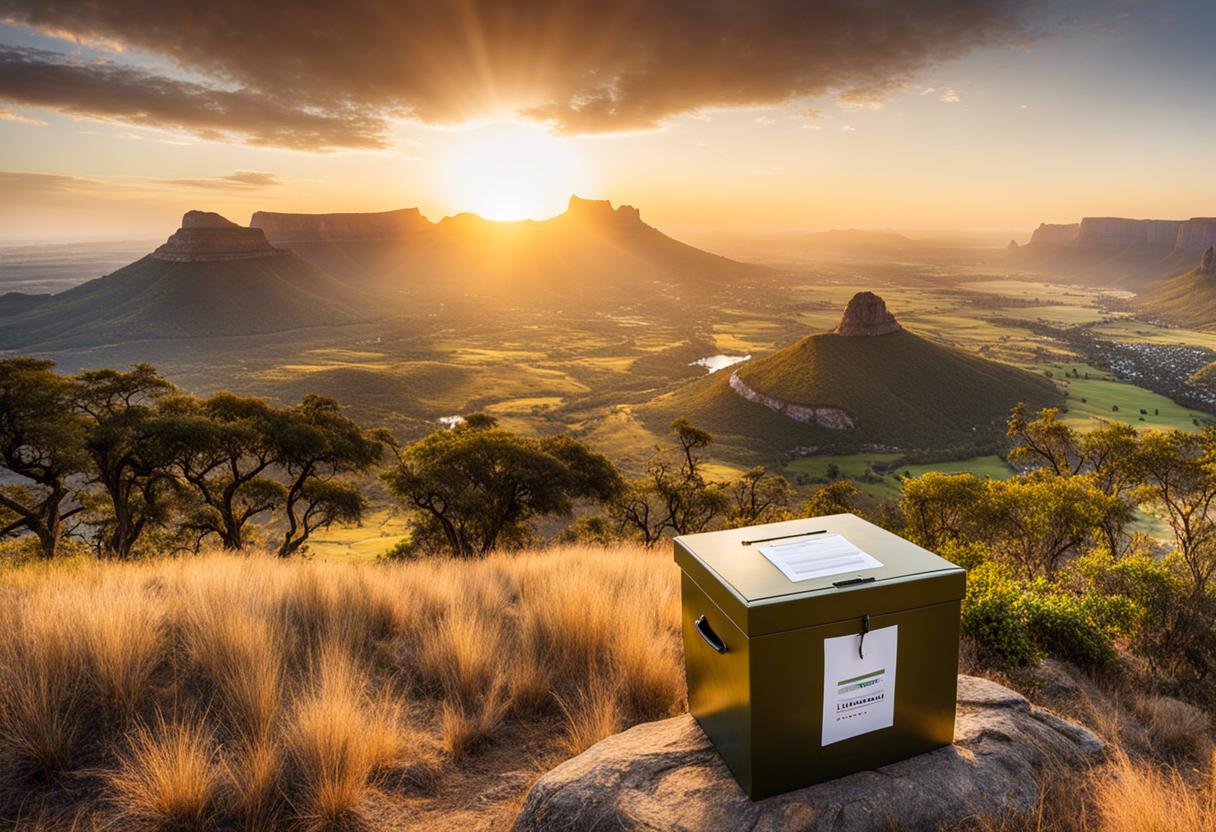Jacob Zuma, the erstwhile South African president, whom many have labelled as corrupt, has resurfaced in the country’s political scene, ready to partake in the forthcoming general election. Despite being ousted from power by the African National Congress over six years prior, Zuma has positioned himself as the leading figure of a fresh left-wing party, potentially altering South Africa’s political sphere post the May 29th voting. Since his dismissal from duty, Zuma has stayed active by pursuing various legal avenues to avoid standing trial over accusations of accepting bribes from a French arms firm back in 1999 when serving as the deputy president. He has also been named in allegations of abetting corruption at state enterprises during his presidential tenure, as indicated by public sector inquiry informants. Zuma, however, refutes these claims.
In spite of the legal troubles he faces, the octogenarian emerged last December as a key leader of a populist political entity, the uMkhonto weSizwe (MK) Party. Soon, poll surveys suggested that the party could secure around 13 per cent of the national votes. Over the subsequent months, he has been urging the electorate to abandon his former party for the MK in the voting, arguing that this would rescue the country from the economic mismanagement of the ANC, overseen by his successor, President Cyril Ramaphosa. Zuma suffered a blow in March when he was barred from running in the election due to a contempt of court sentence he received in June 2021.
However, this decision was later reversed by an electoral court, meaning Zuma might be the top MK nominee for parliament. An April survey carried out by the Social Research Foundation (SRF) showed the MK reaping the benefits of the ANC’s dwindling support, which sank to a mere 37 per cent in the poll of 1,835 respondents. If this poll holds true, the MK could position itself as the third or fourth most favoured party, trailing the ANC and the Democratic Alliance (DA), thereby gaining considerable leverage in an election where many predict no clear victor. The SRF poll also indicated an 11 per cent voter backing for the extreme left-wing party Economic Freedom Fighters (EFF), led by ex-ANC youth leader Julius Malema. Top ANC officials have refrained from disclosing potential political alliances, expressing their intention to secure an outright victory and govern solo.
Since the release of the survey, the notion of MK and the EFF creating a unified left-wing alliance to maintain power, should the ANC’s support crumble as anticipated next month, has grown popular. The perception is that a deteriorating ANC could be forced to form a minority government with the EFF and MK, despite their ideological differences, in order to preserve its ruling position.
The moderate opposition parties in South Africa are also manoeuvring themselves to capitalise on the predicted fall in the ANC’s electoral appeal, sensing that support for the organisation is nearing a critical juncture that would push it below the 50 per cent-plus one vote required to govern independently.
In July of the previous year, the DA aligned with a 10-party coalition, the Multi-Party Charter, with a target to oust the ANC. This group also expressed the desire to keep the EFF out of power, stating its radical economic and political strategies as the reason.
In a message to supporters at the start of the group’s Rescue South Africa Tour earlier this April, DA leader, John Steenhuisen, warned of the catastrophic implications for South Africans should the ANC, EFF, and MK form a coalition government. He referred to this as the ‘Doomsday Coalition’, foreseeing a rapidly unfolding chaos akin to the scenario in nations that have adopted extreme policies.
Both the EFF and MK promote policies such as uncompensated land expropriation and mines nationalisation. They also suggest a concentration of power within white elites as key contributors to South Africa’s economic plight.
Earlier this month, Malema positioned the EFF as decisive players in the post-election context, indicating that the EFF would cooperate with any opponent that supports its policies to form a government, with MK being a probable ally.
Gareth Newham, a senior political analyst at South Africa’s Institute for Security Studies, admits that predicting the election’s deynamics is tough. However, he also suggests that if Ramaphosa remains the ANC’s leader, it’s unlikely that the ruling party would engage with the EFF and MK to form a government.
“The MK and EFF are considered the firm adversaries of Ramaphosa’s ANC faction, which presently holds sway over the body and is set to continue post-election, thus a union appears rather implausible,” he expressed. He posits that should ANC’s backing plummet under 40 per cent in post-vote calculations, it’s probable that the party will seek coalition with the DA.
“Indications suggest that preliminary dialogues have taken place between high-ranking figures of both parties, the main aim being to exclude the EFF and MK from the government,” he mentioned.

